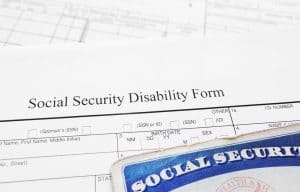Get Disability Benefits With Trigeminal Neuralgia
Trigeminal neuralgia, a condition that affects the trigeminal nerve that relays sensation from the face to the brain, can cause spontaneous, progressive bouts of searing facial pain. Episodes may last days, weeks, months, or longer. Although there are treatments that can help reduce symptoms, there is no cure for trigeminal neuralgia. The condition can potentially produce such severe symptoms that the patient struggles to cope with everyday life.
If you have truly debilitating trigeminal neuralgia that prevents you from working, you may be able to qualify for Social Security Disability (SSD) benefits. However, the disability approval process for pain conditions with subjective symptoms is quite challenging. For assistance getting disability for trigeminal neuralgia in Pittsburgh, contact the attorneys Berger and Green. We can help you apply for monthly cash benefits. Call 412-661-1400 for a free consultation.
40+ years of experience from strong, knowledgeable, compassionate attorneys.
Start A Free EvaluationDoes the Social Security Administration consider trigeminal neuralgia disabling?
Trigeminal neuralgia is not one of the listed conditions in the Social Security Administration’s (SSA) Blue Book. The Blue Book is a resource that provides a list of impairments that the SSA considers disabling. However, that does not mean your condition is invalid or not disabling. You might be able to get approved for disability benefits based on your condition by obtaining a medical vocational allowance (MVA).
For the SSA to consider you disabled and grant you benefits and an MVA, you must prove that you have a medically determinable impairment (MDI) that has lasted or will last a year or longer and that is so severe you are unable to work. Severe cases of trigeminal neuralgia can certainly fit this description.
We know you’re hurting. We can help. Free case evaluations, home and hospital visits.
Contact Us Now For HelpWhat is an MDI and how does the SSA determine if I have one?
The SSA defines an MDI as a “physical or mental impairment is an impairment that results from anatomical, physiological, or psychological abnormalities that can be shown by medically acceptable clinical and laboratory diagnostic techniques.”
In considering whether your trigeminal neuralgia is severe enough to qualify as an MDI, the claims examiner overseeing your case will review all of your medical files and speak to medical experts about your condition. They will also compare your condition and symptoms with related conditions in the Blue Book. To qualify as disabled and get a MVA, your condition must be so impairing that you cannot work or engage in substantial gainful activity (SGA).
The examiner will also assess what skills you have and how your pain disorder and related symptoms affect your ability to perform basic functions. He or she will also assign you with a residual functional capacity (RFC) rating, which gauges what types of capacities and limitations you have that relate to the workforce. To win a MVA, you must be unable to do your current type of work or adjust to new work. The SSA will take your age, work history, skills, and education into consideration when deciding if you are capable of any type of work.
Our attorneys can help you understand the SSA’s requirements for disability benefits before you apply. Contact us today for help with your case.
You need an attorney with the experience and dedication to give your case the care it deserves.
Start A Free EvaluationHow do I prove my disability to the SSA?
Medical evidence is the core of any disability claim. You must be able to provide the SSA with sufficient medical evidence from reliable sources to prove you are disabled. With pain disorders, medical proof is tricky because there are no objective medical tests that measure or prove the facial pain typical to trigeminal neuralgia. After all, pain does not show up on bloodwork or x-rays.
However, a medical professional can clinically observe and record the effects of your pain and other symptoms. This documentation can help prove your disability. Your records can include:
- Doctor’s observations and reports;
- Testimonies from specialists and medical experts;
- A list of treatments you have undergone and your reaction to them, such as medications, surgeries, and topical treatments; and
- Letters from family, counselors, social workers, and case workers that discuss the effect your condition has on your ability to perform basic tasks.
Without sufficient evidence to prove trigeminal neuralgia and how it impairs your ability to work, the SSA will deny your claim. For help determining your eligibility for disability and applying for benefits, contact Berger and Green and request a free case evaluation.
We can address all the legal hurdles that may be keeping you from getting a fair settlement.
Speak To An Attorney TodayWhat additional criteria must I establish to collect disability benefits?
The first step to getting approved for disability benefits is to prove you have a severe long-term impairment that prevents you from working. The second step is to prove you meet the financial or work history requirements appropriate for the specific type of disability benefit you are applying for.
- Supplemental Security Income (SSI): If you are applying for SSI, the need-based disability program for those with limited work histories and very limited income, you must show that your assets and monthly income fall below a certain threshold. The SSA excludes certain income and resources, which can make it easier to qualify.
- Social Security Disability Insurance (SSDI): If you are applying for SSDI, the SSA will check your records to ensure you worked long and recently enough at a job where you paid Social Security taxes. You must have a certain number of work credits on your record to qualify for SSDI, the exact amount of which depends on your age.
For more detailed information about the requirements for SSI or SSDI, call 412-661-1400.
What are my options if the SSA denied my disability claim?
The SSA denies many of the claims it receives each year. It is not uncommon to receive an initial denial for difficult-to-prove conditions like trigeminal neuralgia. If you recently received a denial letter in the mail, the lawyers at Berger and Green can help you appeal your claim and continue to pursue benefits on your behalf. We can try to collect new evidence to support your case and walk you through the appeals process.
The SSA only allows you 60 days from the date of the letter to appeal you case, so contact us as soon as possible after you receive a denial. Call our firm in Pittsburgh today at 412-661-1400.









